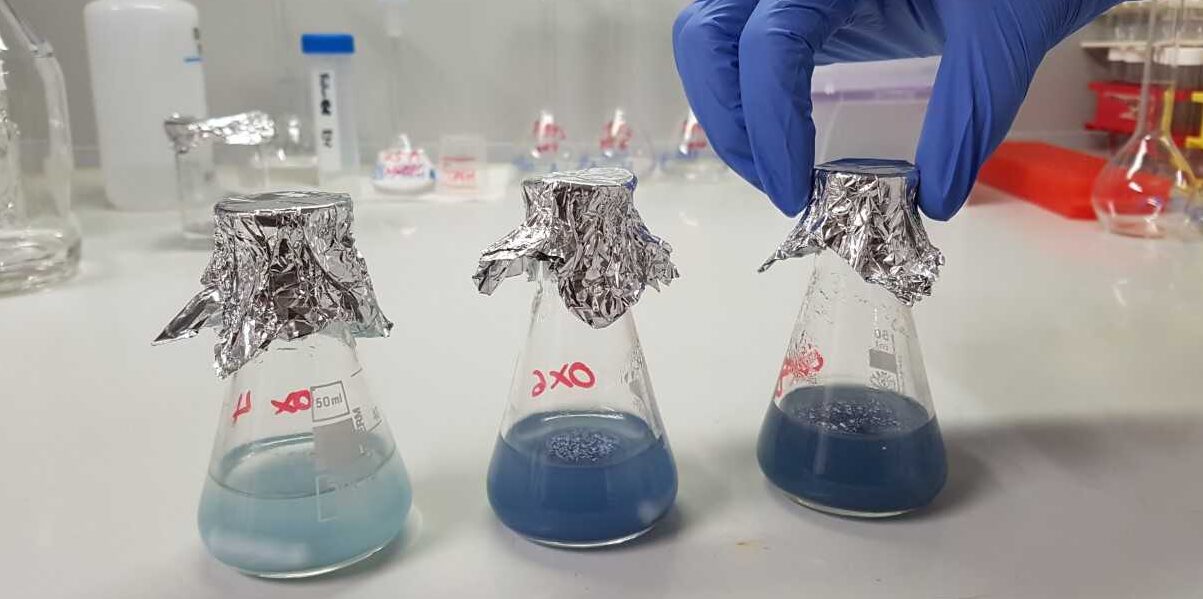Stephan Krämer at the Department of Geosciences is part of “P-Trap”, a Horizon 2020 project.
Description: The iron phosphate vivianite (Fe3(PO4)2∙ 8H2O) occurs worldwide in many reducing environments as e.g. lakes, rivers, swamps, waterlogged soil and sewage sludge and it exists in terrestrial as well as in marine systems. Despite of its widespread occurrence, the importance of vivianite for the burial of P and its role in the global phosphorus cycle might have been underestimated. In recent years, vivianite received more and more attention, on the one hand as remediation product of phosphorus polluted waters, and on the other hand as a valuable resource itself, for example as phosphorous and iron fertilizer. However, a mechanistic understanding of the behavior of vivianite in soil is still missing. Thus, the project is focused on the rates and mechanisms involved in iron and phosphorus mobilization from vivianite and will investigate the effect of the geochemical environment on this process. The effect of precipitation of secondary minerals will be studied and the effect of naturally occurring iron binding ligands (including low molecular weight organic acids, siderophores, humic substances) on the rates of mineral dissolution will be quantified. State of the art analytical tools will be used as well as geochemical modelling.
Collaboration: P-trap project partners and secondments at Utrecht University, EAWAG and Fertiberia
Duration: 4 years, 5 months (01.03.2019 – 31.08.2023)
